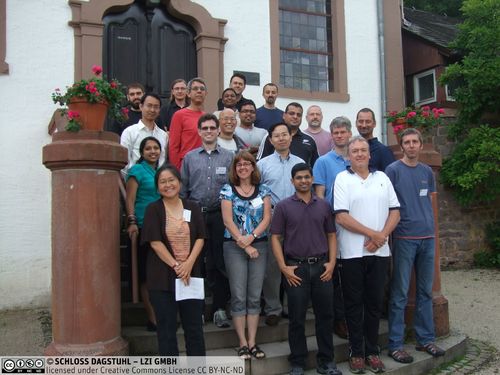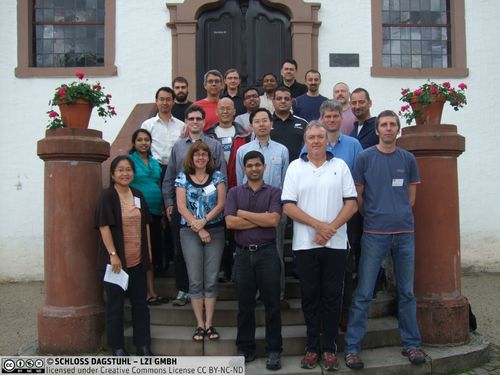Dagstuhl Seminar 12282
Database Workload Management
( Jul 08 – Jul 13, 2012 )
Permalink
Organizers
- Shivnath Babu (Duke University - Durham, US)
- Goetz Graefe (HP Labs - Madison, US)
- Harumi Anne Kuno (HP Labs - Palo Alto, US)
Contact
- Annette Beyer (for administrative matters)
Schedule
Much database research focuses on improving the performance of individual queries. Workload management focuses on a larger question -- how to optimize the performance of the entire workload, as a whole. Workload management is one of the most expensive components of system administration. Gartner listed workload management as the first of two key challenges to emerge from the data warehouse market in 2009. However, we believe that even while both researchers and industry are building and experimenting with increasingly large-scale workloads, there is a disconnect between the OLTP/OLAP/Mixed/Hadoop/Map-Reduce workloads used in experimental research and the complex workloads that practitioners actually manage on large-scale data management systems.
One goal of this seminar was to bridge this gap between research and practice. Dagstuhl Seminar 12282 provided a venue where researchers can engage in dialogue with industrial participants for an in-depth exploration of challenging industrial workloads, where industrial participants can challenge researchers to apply the lessons-learned from their large-scale experiments to multiple real systems, and that would facilitate the release of real workloads that can be used to drive future research, and concrete measures to evaluate and compare workload management techniques in the context of these workloads.
With regard to seminar participants, we took a system-centric focus, and invited participants who could speak to the management of workloads in a variety of systems. Seminar participants came from a variety of academic and commercial institutions: Cloudera, EMC/Greenplum, LinkedIn, Microsoft, MIT, National University of Singapore, NEC, Queen's University, Stony Brook University, Teradatata, Tokutek, TU Berlin, TU Ilmenau, TU München, UC Berkeley, Universität des Saarlandes, Universität Hamburg, University of Waterloo, and Yahoo.
- Ashraf Aboulnaga (University of Waterloo, CA)
- Awny Al-Omari (Cedar Park, US) [dblp]
- Shivnath Babu (Duke University - Durham, US) [dblp]
- Michael A. Bender (Stony Brook University, US) [dblp]
- Douglas Brown (Teradata - Rancho Santa Fe, US)
- Robert J. Chansler (Linkedin - Mountain View, US)
- Yanpei Chen (University of California - Berkeley, US)
- Jens Dittrich (Universität des Saarlandes, DE) [dblp]
- Archana Ganapathi (Splunk inc., US)
- Goetz Graefe (HP Labs - Madison, US) [dblp]
- Hakan Hacigümus (NEC Laboratories America, Inc. - Cupertino, US)
- Rao Kakarlamudi (HP Labs - Palo Alto, US)
- Harumi Anne Kuno (HP Labs - Palo Alto, US) [dblp]
- Bradley C. Kuszmaul (MIT - Cambridge, US) [dblp]
- Barzan Mozafari (MIT - Cambridge, US)
- Sivaramakrishnan Narayanan (EMC Corp. - Bangalore, IN)
- Wendy Powley (Queen's University - Kingston, CA)
- Norbert Ritter (Universität Hamburg, DE) [dblp]
- Kai-Uwe Sattler (TU Ilmenau, DE) [dblp]
- Russell Sears (Microsoft Corp. - Mountain View, US)
- Michael Seibold (TU München, DE)
- Y. C. Tay (National University of Singapore, SG)
- Kostas Tzoumas (TU Berlin, DE) [dblp]
- Jingren Zhou (Microsoft Corporation - Redmond, US)
Classification
- databases / information retrieval
- data structures / algorithms / complexity
- optimization / scheduling
- autonomic computing
- workload management
Keywords
- workload management
- reliability
- application availability



